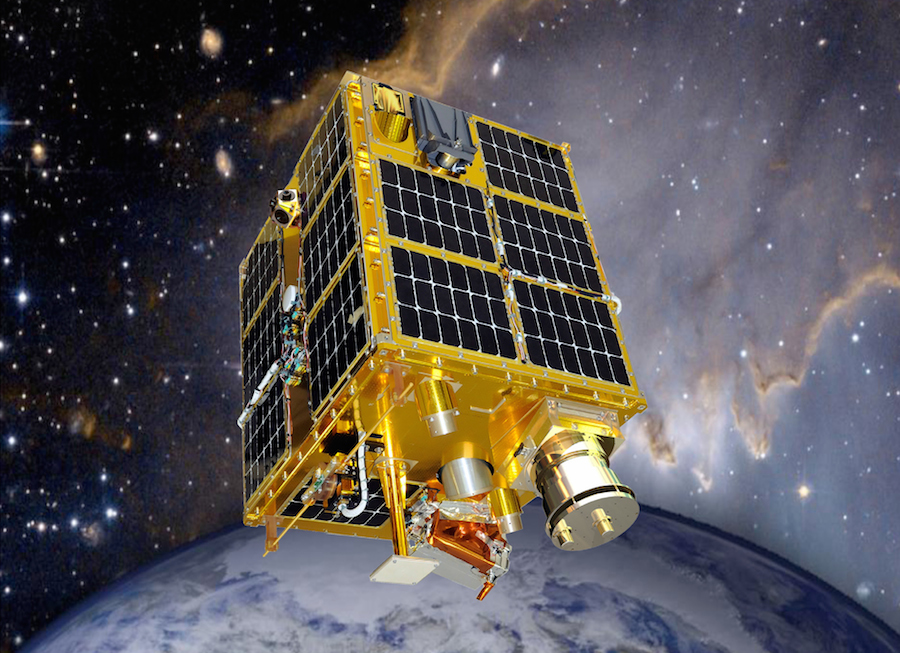
Mark Boudreaux
Project Manager - Marshall Space Flight Center
I am a south Louisiana native from way down in the bayou. Specifically, I was raised in Thibodaux, La., a town of about 20,000 people, which is just south and west of New Orleans. I live in Hartselle, Ala., now.
It was in elementary school. I was the kid who brought a portable black and white television to school to watch the Gemini and Apollo program launches. Of course I asked permission of my teachers to bring the set into the classroom, and it was encouraged -- I had great science teachers. It was a wonderful experience to be able to watch a live launch from school.
It was my childhood dream. I knew I needed a degree in physical science or engineering to be considered for this type of work and so I went to school at a state-run university in Louisiana, where I earned a degree in chemical engineering. Upon graduation I applied to NASA for an engineering position at Kennedy Space Center (KSC). I traveled down to Florida for the interview, and fortunately I scored very well and they hired me. At that time, the Space Shuttle program was gearing up and they needed skilled people. KSC trained me as an engineer in flight hardware, and ever since that first day I have been processing flight hardware. I worked 12 shuttle flights in six years before leaving KSC in 1990. It was very exciting work. I have been a civil servant for NASA for just about 27 years now.
Originally I was inspired by my father, an engineer; and my mother, a homemaker. My godmother was also very influential in my life. I come from a long line of educators: My aunts were schoolteachers. My family always encouraged me to invest in my studies and go on to college. There was never a question of if I was going to attend college; it was more of a question of when.
In our local city school system we had some highly motivated math and science teachers who supported the physical sciences and the exploration of space. My education began back in the 1960s when our country's initial interest in space was obviously captured by President Kennedy with his bold goal to land a man on the Moon in the decade. And so I think the teachers, students and parents -- the whole generation -- were caught up in that excitement, enthusiasm and wonder, and I was too.
Primarily I am a NASA project manager at Marshall Space Flight Center (MSFC). A project manager is a leader of a group of individuals focused on a common goal or product. My most recent project leadership assignment, which I was pleased to be a part of a team of an outstanding group of scientists and engineers, was the development of a low, free flying orbital spacecraft called FASTSAT (Fast, Affordable, Science and Technology SATellite). (We launched this spacecraft in November 2010 and are currently performing mission operations.) FASTSAT has six instruments and weighs 165 kilograms. It was launched into a near polar orbit at about a 72 degree inclination, from the island of Kodiak, Alaska. Its primary goal is Earth-viewing research and technology. NASA supports three Earth-viewing space weather and atmospheric research science activities flying on this mission.
I have been fortunate to be a part of NASA my entire working career, and to have experienced several exciting moments. Besides having had the pleasure of working alongside some of the most talented engineers and scientists from across the globe on more than a dozen launches, there is a particular moment that stands out. I can tell you that I was in a state of awe the first time I climbed aboard a space shuttle to perform a flight instrument test. (This was the Space Shuttle Challenger.) I remember pinching myself and thinking: "How did a small town guy like me get himself into this incredible situation?!" Since then I have had the pleasure of performing operations in other space shuttles and on other spacecraft and launch vehicles, and each and every time it is exciting, but I will always remember that first time.
My recommendations would be to listen to your parents or your teachers, to study and to find a way to go to an accredited university or place of higher education (such as a technological or vocational school) in order to acquire a scientific degree. That in itself will help springboard you for the rest of your life. It is also important to apply yourself and make an effort to do your best in your studies, and to work to become well-rounded in all areas of your education. There are some other enablers -- you should try to get an internship with NASA or one of its aerospace industry partners prior to your graduation to set yourself apart from the rest of your classmates. Also, along the way prepare your heart and your mind to serve mankind and your country's desire to explore.
I relax and spend time with my family and my friends. I do enjoy drawing caricatures and doing woodworking projects (I whittle and I have a lathe). I also have a passion for outdoor landscaping. I enjoy being outdoors and viewing the fruits of my labors.
Stay the course. Don't let your disappointments or your failures overwhelm you. We have all experienced failures at some point in our lives. These disciplines (science and math or engineering) are the platforms from which you can be successful, and contribute in a positive manner to your community.
Planetary science is a global profession.

